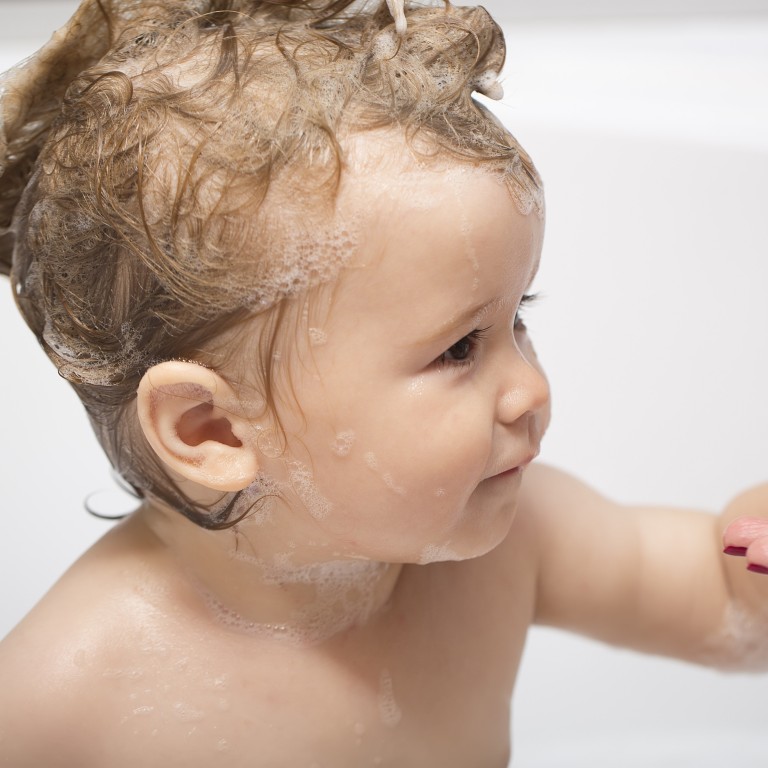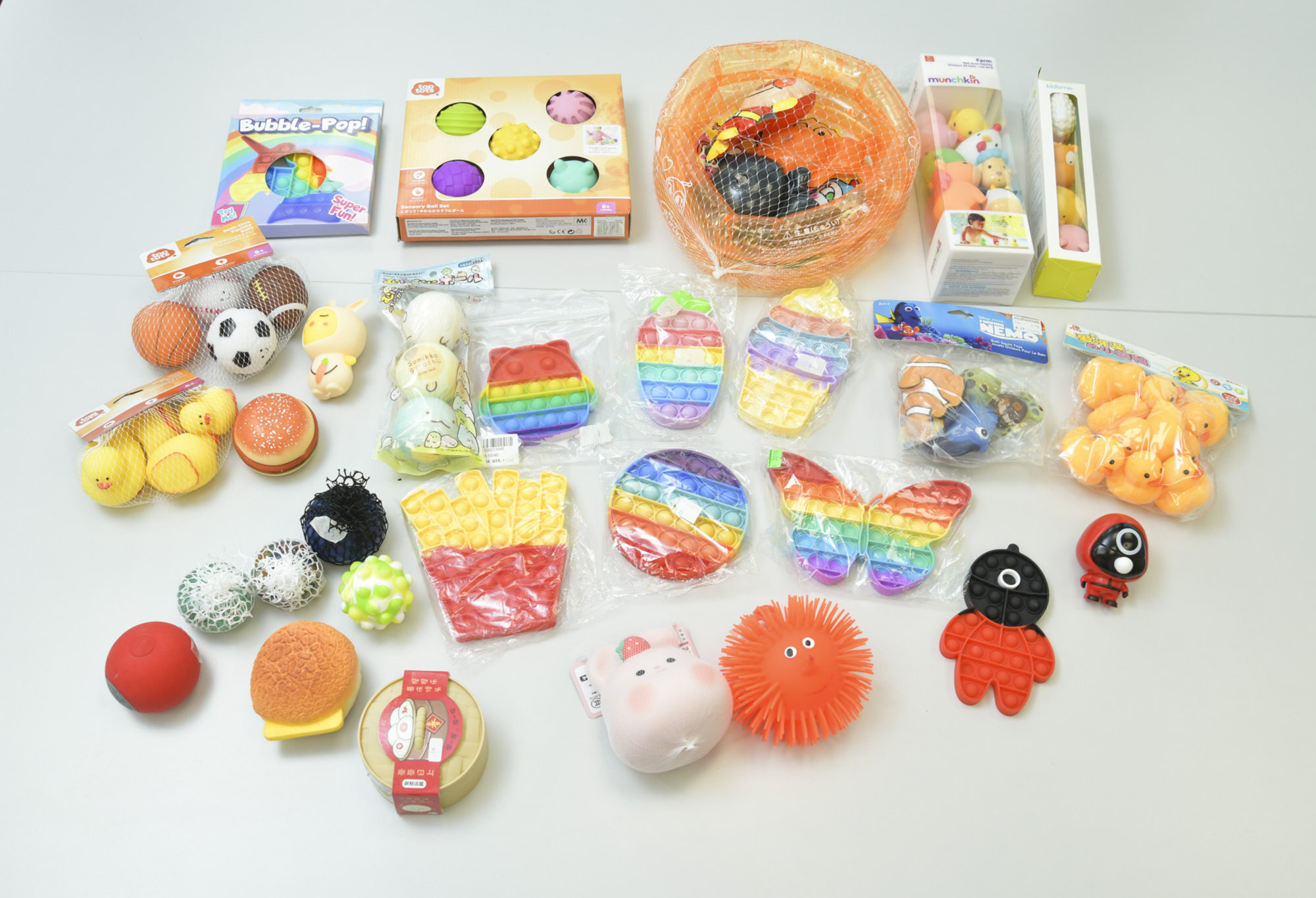
Hong Kong consumer watchdog finds over 75 per cent of stress-relieving toys for children fail to meet EU safety standards
- Consumer Council says 22 out of 29 plastic toys did not comply with safety requirements set out by European Union
- Items sampled include silicone and bath toys that allow children to relieve stress by squeezing and kneading them
More than 75 per cent of stress-relieving toys designed for young children have failed to meet safety standards when tested for the presence of harmful chemicals and choking hazards, according to Hong Kong’s consumer watchdog.
Twenty-two of 29 plastic toys that were tested did not comply with requirements set out by the European Union, while 15 were found to have structural safety problems, the Consumer Council revealed on Tuesday.
The items sampled included silicone and bath toys that allow children to relieve stress by squeezing and kneading them. The council noted that during the pandemic, children were playing with toys more because they were often indoors.

The watchdog conducted “abuse tests” involving children repeatedly pressing and pulling the products, and found that small parts broke off easily and fluid leakage also occurred.
“If these small parts or fluids are ingested by accident, they may cause suffocation or other health risks. The findings were extremely undesirable,” said research and testing committee chairwoman Nora Tam Fung-yee, adding that children might mistake the liquids for juice.
Take sodium content of some rice noodles with pinch of salt, says watchdog
About 85 per cent of the tested items were found to contain polycyclic aromatic hydrocarbons – impurities commonly found in plastics that can be harmful to the respiratory tract and skin.
Excessive levels of phthalates, often added to plastic materials to increase elasticity and durability, were also detected in three toys.
A squeeze toy derived from the popular Korean TV show Squid Game was found to be 25 per cent DEHP, a type of phthalate known to damage the male reproductive system and affect the development of fetuses. Tam said the quantity was the highest level out of all the test samples, reaching 250 times the upper limit mandated by Hong Kong’s Toys and Children’s Products Safety Ordinance.
The Consumer Council had already submitted the test results and information about the products to the Customs and Excise Department for follow-up, she added.
Gilly Wong Fung-han, chief executive of the council, said the manufacturer of the Squid Game toy did not respond to a request for comment.
Hong Kong cleaning firms should be flexible amid pandemic: consumer watchdog
The council carried out the tests after it received 273 complaints relating to plastic toys last year, almost double the amount logged in 2020.
Wong said the complaints mainly concerned delivery issues and poor quality, with customers saying they had received broken or damaged products.
Tam advised parents not to buy toys that were too small to reduce the risk of accidental swallowing and suffocation, especially for children aged three and below.
If a toy broke into small parts, or had fluid leaking from it, parents should immediately clean up the remnants, discard it and wash their hands thoroughly, she said.
Parents should also play with their children to reduce the chance of toy misuse, Tam added.

